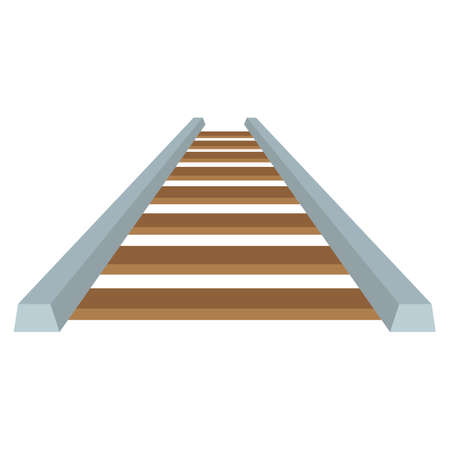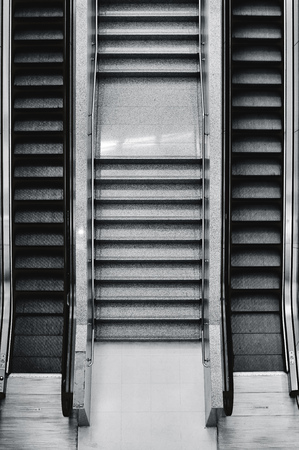Introduction to Feng Shui and Modern American Homes
Feng Shui is an ancient Chinese practice focused on harmonizing individuals with their surrounding environment. In today’s modern American homes, especially those featuring open concepts and multi-level designs, adapting Feng Shui principles can create spaces that feel balanced, inviting, and full of positive energy. Staircases and hallways are often overlooked areas but play a crucial role in how energy, or “chi,” flows throughout the house.
Why Focus on Staircases and Hallways?
Staircases and hallways act as the veins of a home, guiding movement and energy from one area to another. According to Feng Shui, these spaces should promote smooth transitions and avoid energy blockages. Proper lighting is essential—not only for safety but also for encouraging positive chi.
Adapting Feng Shui for Contemporary American Spaces
While traditional Feng Shui uses elements like water features, wood, and earth tones, modern American homes can adapt these ideas using contemporary materials and local design trends. This means incorporating good lighting choices, considering traffic flow, and making use of available space without cluttering it.
Key Feng Shui Principles for Lighting Staircases and Hallways
| Principle | Description | Modern Adaptation |
|---|---|---|
| Balance | Create an even distribution of light to avoid dark corners or harsh shadows. | Use recessed lighting or wall sconces along the staircase or hallway. |
| Flow | Ensure energy can move freely—avoid obstacles or abrupt changes in direction. | Keep pathways clear and use soft, continuous lighting strips. |
| Warmth | Select warm-toned lights to foster comfort and positivity. | Opt for LED bulbs with warm white tones (2700K-3000K). |
| Safety | A well-lit space prevents accidents and supports healthy chi flow. | Add motion-sensor lights for convenience during nighttime. |
This approach blends time-honored Feng Shui guidance with practical solutions suited for American households. By thoughtfully lighting staircases and hallways, you can enhance both the aesthetic appeal and energetic harmony of your living space.
2. Importance of Lighting in Feng Shui
How Light Impacts Energy Flow (Chi)
In Feng Shui, light is more than just a way to brighten up your home—it’s considered a carrier of energy, known as Chi. Good lighting helps Chi move smoothly throughout your space, creating a vibrant and positive atmosphere. When areas like staircases and hallways are dim or shadowy, it can cause the energy to stagnate or even become blocked. This might make your home feel dull or unwelcoming, and over time, could affect the overall harmony of your living environment.
Why Lighting Matters in Staircases and Hallways
Staircases and hallways are transitional spaces—they connect different parts of your home. According to Feng Shui principles, these areas are crucial for guiding energy from one room to another. If they’re poorly lit, it’s like having a traffic jam for energy flow! Well-lit staircases and hallways support smooth movement and help maintain a healthy flow of Chi throughout your house. This boosts not only the energy but also the mood of everyone who lives there.
Common Effects of Lighting on Chi
| Lighting Quality | Effect on Energy (Chi) | Feng Shui Outcome |
|---|---|---|
| Bright & Natural Light | Encourages lively, uplifting energy flow | Promotes positivity and vitality at home |
| Soft & Warm Light | Makes spaces feel cozy and welcoming | Supports relaxation and comfort |
| Poor or Dim Lighting | Blocks or slows down energy movement | Makes areas feel neglected or gloomy |
| Harsh or Cold Light | Can create discomfort or restlessness | Might lead to tension or imbalance |
Tips for Maintaining Positive Energy in Transitional Spaces:
- Choose soft white bulbs for a warm, inviting glow.
- Add dimmers to adjust brightness according to time of day.
- Avoid burned-out bulbs—replace them promptly to keep Chi flowing.
- If possible, let natural sunlight in with skylights or glass panels.
- Use wall sconces or step lights to eliminate dark corners on stairs.
- Add mirrors in narrow hallways to reflect light and expand energy flow.
By paying attention to how you light up your staircases and hallways, you’re not just making these spaces safer—you’re also supporting the overall harmony and well-being of your entire home through better Feng Shui.

3. Best Lighting Solutions for Staircases
Lighting up staircases is a key part of good Feng Shui in any American home. Well-chosen lighting not only keeps your family safe but also attracts positive energy and makes your home feel more inviting. Here are some practical and stylish lighting ideas that work well with modern U.S. interiors while staying true to Feng Shui principles.
Why Good Staircase Lighting Matters in Feng Shui
According to Feng Shui, staircases carry energy between levels of the home. If they are dark or poorly lit, it can block the flow of good energy (Chi) and even increase the risk of accidents. The right lighting helps brighten these spaces, encouraging positive vibes and safety for everyone at home.
Recommended Lighting Fixtures
| Type | Description | Feng Shui Benefit | American Home Style Match |
|---|---|---|---|
| Recessed Lights | Installed into the ceiling for a clean, modern look | Evenly spreads light, avoiding shadows where negative energy can linger | Works great in contemporary and minimalist designs |
| Pendant Lights | Hanging fixtures that add personality and focus light downward | Adds warmth and can highlight specific areas for a welcoming entryway feel | Perfect for traditional, farmhouse, or transitional homes |
| LED Strip Lights | Slim strips placed under steps or railings for subtle illumination | Soft, indirect light guides energy smoothly up or down the stairs | Excellent choice for modern and urban loft styles |
| Wall Sconces | Mounted on walls to provide balanced side lighting along stairways | Reduces harsh shadows, improving safety and energy flow | Suits both classic and modern American aesthetics |
Tips for Choosing Staircase Lighting:
- Avoid harsh overhead lights: Soft, layered lighting feels cozier and is better for Chi.
- Add dimmers: This lets you adjust brightness to match the time of day or mood you want to set.
- Keep it consistent: Use similar finishes or shapes throughout your hallway and staircase area to create visual harmony—a key Feng Shui principle.
- Focus on safety: Make sure every step is visible, especially at night.
- Select warm-white bulbs: They mimic natural sunlight and help create a welcoming atmosphere according to both Feng Shui and American preferences.
Create a Welcoming Flow of Energy
The right lighting not only prevents trips and falls but also brings uplifting energy into your home. By choosing fixtures that reflect your personal style while following these Feng Shui guidelines, you’ll have a staircase that’s both beautiful and beneficial for everyone who uses it.
4. Optimizing Hallway Lighting for Good Energy
Choosing the Right Lights for Your Hallway
According to Feng Shui, a well-lit hallway helps keep energy flowing smoothly throughout your home. In American homes, hallways often get overlooked, but they are important connectors between rooms. Brightening up these spaces can make your home feel more inviting and balanced. Choose lighting options that are familiar and easy to find at your local hardware store or online.
Popular American Lighting Options for Hallways
| Lighting Type | Features | Feng Shui Benefit |
|---|---|---|
| Recessed Ceiling Lights | Sleek, modern look; evenly spreads light | Eliminates dark corners, keeps energy moving |
| Wall Sconces | Adds style; mounted at eye level on walls | Brightens walls and stops stagnant energy build-up |
| Flush Mount Fixtures | Low-profile; ideal for low ceilings | Makes the hallway feel open and welcoming |
| LED Strip Lights | Flexible; can be placed along baseboards or crown molding | Guides energy along the length of the hallway |
| Table Lamps (on hallway tables) | Adds a cozy touch if there’s space for a small table | Creates soft, layered lighting for warmth and comfort |
Where to Position Lights for Maximum Brightness and Flow
- Avoid Dark Corners: Install lights at both ends of the hallway and consider adding sconces or additional fixtures along longer stretches to prevent shadows.
- Even Spacing: Space ceiling lights evenly so no area feels dim or isolated.
- Use Dimmers: Adding dimmer switches allows you to adjust brightness depending on the time of day or occasion.
- No Flickering Bulbs: Replace flickering or burnt-out bulbs promptly—flickering light disrupts good energy.
- Add Mirrors: Hanging a mirror on the wall can help bounce light around, further brightening the space and enhancing energy flow.
Simple Steps to Improve Hallway Lighting with Feng Shui in Mind
- Select warm white bulbs (2700K–3000K) for a welcoming atmosphere.
- Avoid harsh overhead lighting; combine with softer wall sconces or table lamps if possible.
- If your hallway has artwork or family photos, use accent lighting to highlight them without creating glare.
- Keep pathways clear of clutter so light can travel easily from one end of the hallway to the other.
- Curtains or blinds near hallway windows should be easy to open so natural daylight can supplement your artificial lighting during the day.
Your Takeaway: Light Up Every Step!
No matter what size your hallway is, remember that bright, even lighting keeps energy flowing and makes your home feel happier and healthier. With easy-to-find American lighting fixtures and a few Feng Shui-inspired tweaks, it’s simple to turn any dark passage into a bright, positive pathway.
5. Balancing Functionality and Feng Shui Appeal
Finding the Right Light for Your Space
When lighting up staircases and hallways in your home, it’s important to strike a balance between practical needs and positive energy flow. According to Feng Shui, these areas represent pathways for energy, so good lighting is key for both safety and harmony. In American homes, energy efficiency, accessibility, and style are also top priorities.
Tips for Selecting Lighting that Works for Both Worlds
- Choose Layered Lighting: Combine ceiling lights with wall sconces or step lights to avoid dark corners and shadows. This helps energy (Chi) move freely and keeps the space bright for daily use.
- Opt for Soft White Bulbs: Warm, soft white light (2700K–3000K) creates an inviting atmosphere while supporting calm energy. Avoid harsh blue or overly bright white lights.
- Use Motion Sensors: For high-traffic areas like hallways, motion sensor lights provide convenience, save energy, and ensure the space is always well-lit when needed.
- Avoid Direct Downlights on Stairs: Instead of spotlighting directly down on stairs—which can feel harsh—use side-mounted fixtures or indirect lighting for a softer effect.
- Select Fixtures That Fit Your Home Style: Choose lighting designs that blend with your décor—modern, farmhouse, or traditional—to keep things cohesive with your lifestyle preferences.
Quick Guide: Lighting Choices for Staircases & Hallways
| Lighting Type | Feng Shui Benefit | American Lifestyle Advantage |
|---|---|---|
| Wall Sconces | Smoothes energy flow, prevents sharp Chi | Saves floor space, stylish accent options |
| Step Lights | Guides positive energy upward/downward safely | Improves safety, easy to install with LED strips |
| Pendant Lights | Adds a focal point without blocking pathways | Adds character, available in many styles/finishes |
| LED Bulbs | Maintains gentle and even illumination | Energy-efficient, long-lasting, budget-friendly |
| Dimmers & Smart Controls | Adjusts light levels to support mood and time of day | User-friendly tech, fits busy lifestyles |
Practical Steps to Get Started:
- Replace outdated bulbs with energy-saving LEDs in warm tones.
- Add dimmers to adjust brightness based on activity or time of day.
- If possible, install motion sensors in hallways for hands-free convenience.
- Select fixtures that reflect your personal taste but avoid overly sharp or aggressive shapes to maintain harmonious Chi.
- Keep light fixtures clean and in good repair to support fresh energy flow.
The right lighting choices can easily fit into your daily routines while enhancing both the look and feel of your home according to Feng Shui principles.


